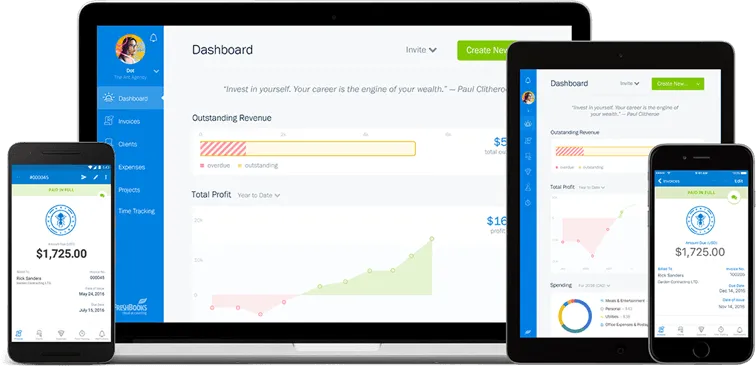How To Start A Nonprofit In 8 Steps

Starting a non-profit can be a fulfilling and effective way to make a difference if you have a social cause you’re passionate about, such as improving education, supporting animal welfare, or protecting the environment. Although it requires time and resources, with the right knowledge and planning, it’s possible to grow a successful nonprofit.
We’ll explore 8 steps to starting a nonprofit to help you set up your organization. We’ll also explore some of the advantages and disadvantages of nonprofit structures to help you decide whether a nonprofit is the right fit for your passion and goals.
Key Takeaways
- Research similar nonprofits to find effective structures and a niche for your organization.
- The right name and mission statement can help publicize your nonprofit.
- Nonprofits are eligible for tax exemptions including corporate income tax.
- You must file annually with the IRS to keep your nonprofit federal tax-exempt status.
- Consider your social goals and personal resources when deciding whether to start a nonprofit.
Table of Contents:
- Do Your Research
- Choose a Name
- Establish Your Mission Statement
- File Articles of Incorporation and State Forms
- Write Nonprofit Bylaws
- File for Federal 501(c)(3) Tax Exemption
- Market and Grow Your Nonprofit
- Maintain Compliance
- Should You Start a Nonprofit Organization?
- How a Nonprofit Makes Money
- Advantages and Disadvantages of Nonprofit Organizations
- Conclusion
- Frequently Asked Questions
1. Do Your Research
Before starting your nonprofit, you’ll want to have a clear concept in mind. This means determining who you’ll serve and what your nonprofit is going to provide.
To begin this process, research other charities. Look to nonprofit corporations that are doing the work you hope to do. Do you see missed opportunities where your nonprofit could fill a gap? How will you structure your nonprofit similarly or differently?
Doing a bit of research will help you hone in on your main concept and gain some ideas on how to structure your organization.

2. Choose a Name
Choosing a name for your nonprofit can be fun but also difficult. You may struggle to think of a name or, if you do have one in mind, you might find that a similarly named association already exists.
Google some not-for-profit organizations to gain some ideas. Also, confirm that your preferred name isn’t already being used by an existing institution or business. This will make it easier to establish your organization and choose a domain name for your website.
Once you’ve chosen a name, look to domain registrars like Namecheap or GoDaddy to purchase the domain name for your organization. Later, you can set up your website with this domain and then you’ll really be in business.
3. Establish Your Mission Statement
Your charity’s mission statement defines what your organization does, who it serves, and how it provides services to your chosen community.
A mission statement is necessary if you want to fundraise, apply for grants, or otherwise market your nonprofit. A mission statement can be a simple sentence or an entire paragraph. Either way, the goal is to give the public and potential donors an idea of what your organization does.
This is an important step in your nonprofit process, so don’t rush it. Give thought to your organization’s goals, how it fits into the wider community, the niche it serves, and how it can grow and commit to long-term social change. A strong mission statement increases your ability to connect with sponsors and get your organization off the ground.
For example, here is the mission statement for Teach for America—a foundation that combats inequality in the education system:
“Teach for America is a diverse network of leaders working to confront educational inequity through teaching and at every sector of society to create a country free from this injustice … One day, all children in this nation will have the opportunity to attain an excellent education.”
4. File Articles of Incorporation and State Forms
Now that you have a name for your nonprofit and a solid foundation of what it is going to provide, it’s time to begin the process of incorporation.
State laws dictate their own requirements for the formation of nonprofits. For that reason, you should make sure to connect with your state’s association of nonprofits for specific requirements.
Below are the basic steps for incorporating nonprofits. Again, regulations vary from state to state, so these are by no means comprehensive.
- Register the intended name of your nonprofit corporation, and make sure that it hasn’t already been taken by an existing entity.
- File articles of incorporation with your state. Depending on your state, you may have to provide additional information, such as proof of corporate name, filing fees, or a certificate of disclosure.
- Some states may also require nonprofits to publish articles of incorporation in a local newspaper and provide further proof with the state’s agency.
5. Write Nonprofit Bylaws
Your nonprofit’s bylaws are essentially your organization’s guidebook. It outlines how your institution will be run, how you organize meetings, what responsibilities board members have, how funds will be allocated, and more. They serve as your organization’s manual and will help keep things running smoothly.
Your bylaws may outline:
- The organization’s purpose
- Membership structure
- Meeting procedures
- Committees
- Staff compensation
- Record keeping
- Handling of conflicts of interest
- Board of Directors procedures
Note that there are a few things you’ll need to comply with depending on your state’s laws. Be sure to check with your secretary of state to learn your state’s requirements regarding nonprofits.
6. File for Federal 501(c)(3) Tax Exemption
The IRS requires nonprofits to file Form 1023 in order to obtain tax-exempt status. At the same time, some states require nonprofits to file for a state-level exemption. Most often, this is the 501(c)(3) tax-exempt status.
This tax exemption provides a range of benefits, including but not limited to:
- Federal and state tax-exempt status
- Increased credibility in the public eye
- Ability to collect tax-deductible donations
- Exemption from certain property taxes
Simply submitting the 501(c)(3) form does not guarantee that your organization will receive nonprofit status. It’s important to ensure that your mission statement and bylaws align with nonprofit status, and it’s helpful to seek assistance from a trusted tax professional to submit an accurate application and improve the likelihood of receiving 501(c)(3) status.
7. Market and Grow Your Nonprofit
Once officially established, your nonprofit can begin collecting donations, distributing funds, and getting to work. Every nonprofit organization is different, so how you market your nonprofit is up to you.
Many nonprofits start an official Facebook page and host local events to raise funds. Others launch a blog or newsletter to drum up traffic and attract volunteers. The opportunities are endless when it comes to scaling your nonprofit to new heights.

It’s easier to grow your nonprofit when you have the right accounting tools to support you. FreshBooks accounting software makes it easy to track and categorize your expenses, send professional invoices, and automatically generate financial reports for potential investors and donors. Try FreshBooks for free to get started and grow your nonprofit today.
8. Maintain Compliance
Remember that a 501(c) organization must satisfy certain conditions in order to maintain tax-exempt status. This means following state and IRS requirements regarding compliance. This may require consulting with professionals such as lawyers or tax advisers in order to keep your status.
Should You Start a Nonprofit Organization?
Starting a charitable organization can be a meaningful and fulfilling endeavor that requires a lot of time, commitment, and responsibility. When you’re considering whether to start a nonprofit organization, it’s important to balance your passion and drive for social impact with a clear analysis of your goals and resources.
Decide what your own goals are for starting a nonprofit—what specific needs do you want to fulfill and how will you measure your success? Then assess what resources you currently have available to you and how you could gather any that you still need. Balancing your goals and existing resources can help you decide whether starting a new nonprofit corporation is right for you.
How a Nonprofit Makes Money
With a nonprofit, the organization’s profits are never distributed to the founders or individual members of the organization. Instead, any profit brought in is used to serve the people, animals, initiatives, or communities of the group.
In this structure, the profits are put back into the group to cover operating expenses, philanthropic events, charity activities, and similar expenses.
Advantages and Disadvantages of Nonprofit Organizations
Before starting, it’s worth considering the advantages and disadvantages of nonprofits. That way, you can make an informed decision as to whether founding one is the right move for you.
Advantages of Starting a Nonprofit
- Establishing a nonprofit gives you the opportunity to collect funds and distribute them to less fortunate communities or other philanthropic initiatives
- Owning a nonprofit can be fulfilling and give you (and other members) a greater sense of purpose
- Charitable organizations that qualify under Internal Revenue Code 501(c)(3) are eligible for exemption from paying corporate income taxes
- They may be eligible for public and private grants
- Creditors and courts are allowed limited access to the assets of the nonprofit (limited liability)
- A nonprofit exists as its own legal entity and therefore holds its mission above the interests of individual founders/members (incorporation)
Disadvantages of Starting a Nonprofit
- Founding a nonprofit takes money (and time), particularly when it comes to filing for incorporation and tax exemption
- As a nonprofit owner, you’re required to keep detailed records and submit annual filings to the IRS in order to keep your tax-exempt status
- Getting a nonprofit off the ground can be stressful, as it requires generating enough funds to get started and takes time to get the word out to the community
- Nonprofits serve the public and are therefore open to public scrutiny, which may involve the public asking for state and federal tax records, reports on member salaries, and details about the organization’s expenses
Do you want to start a nonprofit? Despite the hurdles, establishing a nonprofit can be extremely fulfilling and make a significant impact on the communities being served. Start making a difference with your own nonprofit or charity.

Conclusion
Starting a nonprofit can be a valuable way to create social impact and improve the global community. Although it demands time, commitment, and funds, with careful research and planning it’s possible to establish a successful nonprofit organization.
Nonprofits are eligible for tax-exempt status, which can make it easier to grow your organization and deliver funds where they’re most needed. Following the steps can guide you through the startup process and help you decide whether forming a nonprofit is right for you.
FAQs About How To Start a Nonprofit
Learn more on how to start a nonprofit on your own, including information on paying employees, compensating nonprofit founders, and understanding nonprofit taxes with these frequently asked questions.
Can you start a non-profit alone?
Although you can start a nonprofit alone, running a nonprofit typically demands a lot of time and resources, especially in the early stages. Many people prefer to start nonprofits with one or more partners to distribute the labor.
Can I pay myself, the founder of a nonprofit?
The founder of a nonprofit is legally allowed to pay themselves a fair salary. They can also provide compensation to workers. However, nonprofits are often subject to public scrutiny and may be asked to publicize their finances, so it’s important to research fair compensation in your field.
How much can a nonprofit make before filing taxes?
The Internal Revenue Service requires a nonprofit to file taxes when it has $50,000 or more in gross receipts. You can use Form 990 for Return of Organization Exempt from Income Tax PDF, or Form 990-EZ for Short Form Return of Organization Exempt from Income Tax PDF.
Reviewed by
Michelle Payne has 15 years of experience as a Certified Public Accountant with a strong background in audit, tax, and consulting services. Michelle earned a Bachelor’s of Science and Accounting from Minnesota State University and has provided accounting support across a variety of industries, including retail, manufacturing, higher education, and professional services. She has more than five years of experience working with non-profit organizations in a finance capacity. Keep up with Michelle’s CPA career — and ultramarathoning endeavors — on LinkedIn.
RELATED ARTICLES


 How To Start a Landscaping Business in 7 Steps (2025 Guide)
How To Start a Landscaping Business in 7 Steps (2025 Guide) How To Start a Graphic Design Business in 2025: 17 Steps
How To Start a Graphic Design Business in 2025: 17 Steps The Military Veteran's Guide to Starting a Business: Everything You Need to Know and More
The Military Veteran's Guide to Starting a Business: Everything You Need to Know and More When Should You Make Your First Hire?
When Should You Make Your First Hire? How to Reduce Overhead Costs: The Small Business' Guide
How to Reduce Overhead Costs: The Small Business' Guide How to Keep Track of Expenses and Profits?
How to Keep Track of Expenses and Profits?